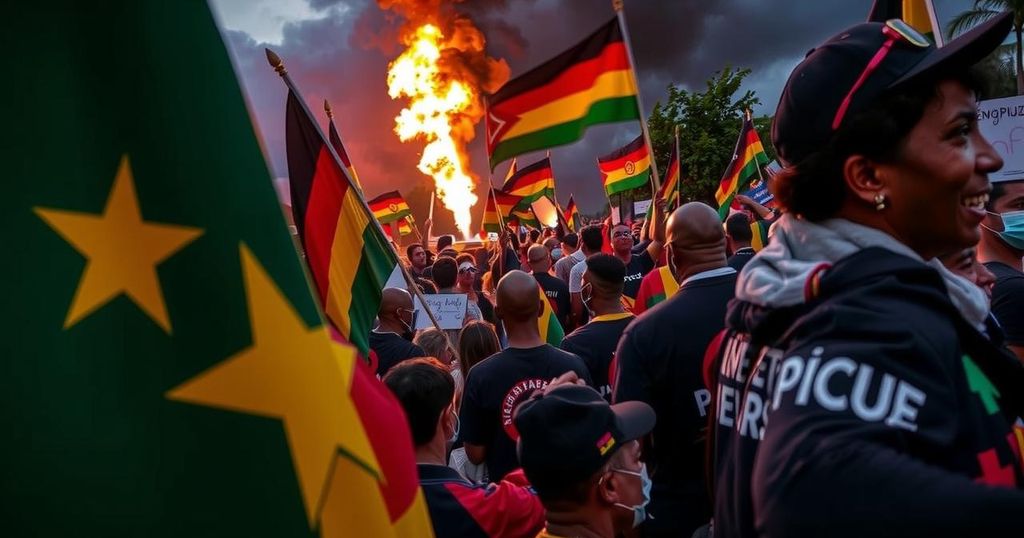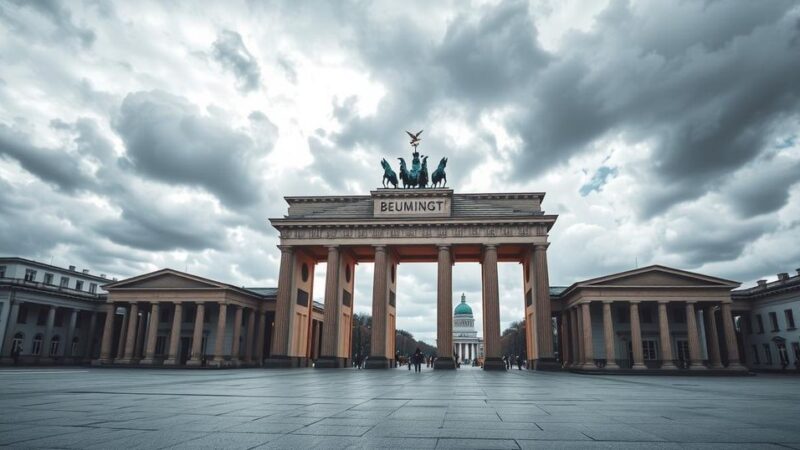Mozambique opposition figures Elvino Dias and Paulo Guambe were killed in a drive-by shooting ahead of expected protests against controversial election results. The Podemos party, led by Venâncio Mondlane, has rejected the provisional outcomes favoring the ruling Frelimo party and is calling for a nationwide strike. Human rights groups have criticized the election process, citing violence and intimidation tactics used by Frelimo. There are fears that protests could lead to further violence, particularly with the history of security forces firing on demonstrators.
In a tragic escalation of violence in Mozambique, two prominent opposition figures were murdered in a brazen attack on Saturday. The victims, Elvino Dias, a lawyer for the Podemos party, and Paulo Guambe, a party official, were fatally shot while traveling in their vehicle in the Bairro da Coop area of the capital city, Maputo. This heinous act has raised tensions within the nation, particularly as protests are anticipated in response to the contentious election results that have recently been announced. The Podemos party, led by presidential candidate Venâncio Mondlane, has vocally rejected the provisional election results that indicate a likely victory for the ruling Frelimo party, which has maintained a hold on power for over fifty years. In light of the alleged irregularities surrounding the election, Podemos has organized a nationwide strike for Monday. Human rights organizations, including Mozambique’s Center for Democracy and Human Rights (CDD) and Human Rights Watch, have expressed their concerns regarding these developments. According to Adriano Nuvunga, director of CDD, the attack showed a clear indication of premeditated violence as nearly 10 to 15 rounds were fired at the victims, leading to their instantaneous death. External observers have criticized the latest election process, citing widespread vote-buying, intimidation tactics, and discrepancies in voter registration that have affected Frelimo strongholds, undermining the integrity of the electoral process established since Mozambique’s transition to democracy in 1994. With final results slated for release on October 24, there are heightened fears that the planned protests may result in further violence, particularly given that the Mozambican security forces have a history of using lethal force against political demonstrators, especially in the aftermath of the previous election cycle in 2022. In the lead-up to this pivotal moment in Mozambique’s political landscape, the international community watches closely, hoping for a peaceful resolution amidst the prevailing unrest.
Mozambique has been a one-party state under the Frelimo party since the nation gained its independence in 1975, following a prolonged civil war that lasted until the mid-1990s. Since the establishment of a multiparty democracy in 1994, elections in Mozambique have frequently been marred by allegations of malpractice, including fraudulent practices, intimidation, and violence against opposition members. The political climate in recent years has been increasingly polarized, particularly with the emergence of the Podemos party and its leadership under Venâncio Mondlane. The stakes surrounding the recent election are high, as they not only determine the future governmental structure but also impact the ongoing struggle for democratic processes in Mozambique.
The assassination of Elvino Dias and Paulo Guambe underscores the severe tensions and violence surrounding Mozambique’s recent electoral process, characterized by accusations of fraud and irregularities in favor of the long-dominant Frelimo party. As the nation braces for potential uprisings against these disputed results, the call for a nationwide strike highlights the urgent demand for accountability and integrity in the electoral system. The response from security forces in upcoming protests will be crucial in determining the pathway towards stability or further conflict in the region.
Original Source: www.theguardian.com






